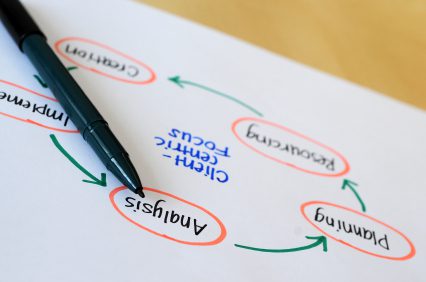How do leaders get to where they are? Getting to a leadership position takes a mixture of grit and determination, as well as having a range of technical and field-specific knowledge under your belt.
Did you happen to notice anything missing from that list? You guessed it: it also takes soft skills. It is all well and good being excellent at what you do from a technical perspective, i.e. knowing complex programming languages, but having a strong set of soft skills is incredibly important in the modern workplace, too.
Don’t be misled by the term ‘soft’, either. Soft skills take years of conscious effort to fine-tune. For example, people management skills might not be something that you can pick up overnight if you are introverted, and may take you months, or even years to get the grasp of.
In this article, Henley Training Associates will be going through six specific reasons why it is important for leaders to be equipped with soft skills.

1. Soft Skills Help You To Convey Your Goals
As a leader, you will probably be responsible for managing budgets, ensuring projects run smoothly and are delivered on time. This will probably involve a whole range of stakeholders, potentially internal and external, and obviously your team, so a soft skill such as strong communication will be extremely useful. That is just as true whether you work for a large corporation or a small business.
Seems pretty obvious, but knowing how to get your vision across to people you are collaborating with does the following things:
- It makes you look decisive, poised and in control
- It gives your team a sense of direction
Your goals cannot come to fruition if you are not communicating with the key players that will be working on making this happen, so fine-tuning your communication skills will help you get where you want to be with your projects.
2. Soft Skills Can Make You More Approachable
There is no doubt that great leaders are well-respected by the people working for them, but the way all great leaders get to that point is by having good interpersonal skills. This is a soft skill that involves nurturing relationships with those around them, building trust and keeping channels of communication open.
A big part of having a solid set of interpersonal skills is also having emotional intelligence. This means that whilst having high standards, you are also rewarding your team and recognising their efforts.
Gone are the days of managers being deemed as “scary” or out of touch with their teams. Having interpersonal skills means that your team sees you as a role model, more likeable and they will want to stick around in the organisation for longer. So not only does it make you look good as a leader, but it also reduces employee turnover and absenteeism, both of which can decrease productivity in the workplace.
3. Soft Skills Can Help With Personal Development
Getting to a leadership role does not mean that your development stops there. The hallmark of any leader should be to have a desire to continue growing, and nurturing your soft skills can be a great way to give your leadership skills the edge. Although this should be the case for anyone in a leadership position, it should especially be the case if you have your eye on C-suite roles. Directorship, anyone?
Intangible skills that you can work on as part of a personal development plan, i.e. things that aren’t directly related to a technical aspect of your role can include looking into improving managing your time and priorities, stress management skills, building your confidence and assertiveness, and even getting coaching to help you identify barriers at work.
Even if this involves a conversation with your HR department, anything that enriches you outside of your day-to-day responsibilities is likely to look good from a leadership perspective as it proves that you are taking ownership of developing yourself – without being prompted to.
4. Soft Skills Can Increase Your Resilience & Adaptability
Leaders aren’t perfect. But those that have taken the time to understand those around them and different scenarios are more likely to be equipped with the tenacity to respond and adapt to change, whether that is a project not quite going to plan, dealing with difficult people or anything else.
Negotiation skills are a soft skill that all leaders need. Great leaders know how to deal with disputes in a calm and diplomatic way, which is an invaluable thing to have in the workplace.
5. Soft Skills Allow Leaders to Delegate
Having soft skills means that you know when to say yes or no. The ability to delegate and have a sixth sense understanding of how to prioritise your time makes it easier for you as a leader to make room for urgent tasks.
Those that haven’t developed this fully may feel the need to say yes to everything, as they may not want to let anyone down. Leaders with soft skills, however, just intuitively know when to delegate.
6. Finally, Soft Skills Are Futureproof
You may have heard talks about automation taking over jobs in the future. But one thing you probably can’t teach a machine is empathy, how to respond under pressure, and all the other soft skills we have discussed in this article.
The rise of automation is driving a need for soft skills like communication, the ability to listen and the comprehension of emotions, which all leaders should strive to develop and put into practice at work.
Soft Skills Make Strong Leaders
To conclude, soft skills for leaders not only enrich those in senior management positions but also positively impact those that they look after. So if you are reading this as a manager, supervisor or team leader, having a strong set of soft skills is a win-win for yourself because it will help you to be more efficient in your role.
And if you are reading this as someone in a junior role and are thinking of making a transition to a more senior role in the future, start by getting the soft skills in this artic



Hey, Read this blog post, gained a better view about “soft” skills and why they are so important for good leaders and managers. You have given very useful points to develop and implement these skills to build better teams and improve results. Would love to see more stuff regarding soft skills! Good effort and keep posting!